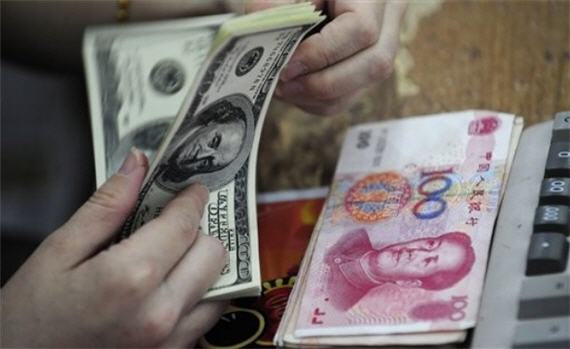China, US Debt, and Power
Joseph Nye explains why China's "demand the United States address its structural debt problems and ensure the safety of China's dollar assets" is really just talk.
Joe Nye, the Soft Power guy (not to be confused with Bill Nye, the Science Guy) argues that China’s “demand the United States address its structural debt problems and ensure the safety of China’s dollar assets” is really just talk.
The real test will be whether China moves away from the dollar in any significant manner. While it makes modest adjustments to its reserve holdings, there are few good alternatives to the dollar. And while it calls for an international basket of currencies to replace the dollar, there are few takers. Of course, China might move toward opening its currency and credit markets in an effort to make the yuan a reserve currency, but the authoritarian political system is unwilling and unprepared to move to that degree of economic freedom.
Many commentators see the downgrading of American debt as a great shift in the global balance of power between the U.S. and China. Some wags have warned the American navy not to sail too close to China, because if the Chinese captured our ships, we would no longer have enough money to ransom them. But such jokes misunderstand the nature of power. Analysts point to China’s seemingly unstoppable growth and its holdings of United States dollars. But as I show in my latest book, The Future of Power, they fail to take into account the role of symmetry in interdependence in creating and limiting economic power. If I depend on you more than you depend on me, you have power. But if we both depend equally upon each other, there is little power in the relationship.
Some observers claim that China could bring the United States to its knees by threatening to sell its dollars. But in doing so, China would not only reduce the value of its reserves as the price of the dollar fell, but it would also jeopardize U.S. willingness to continue to import cheap Chinese goods, which would mean job loss and instability in China. If it dumped its dollars, China would bring the United States to its knees, but might also bring itself to its ankles. The situation, analogous to the Cold War’s balance of terror, where the price of aggression was the inevitable destruction of both sides, has both sides eager to maintain the balance of interdependence even as they continue to jockey to shape the structure and institutional framework of their market relationship. In 2010, when the United States angered China by selling arms to Taiwan, some People’s Liberation Army generals suggested that China punish the U.S. by dumping its dollars. The Chinese leadership wisely rejected their advice.
The old saw that, “If you owe the bank a thousand dollars, the bank owns you; if you owe the bank a million dollars, you own the bank” applies here. But, as Nye notes, it’s really much more than that. Not only does the need to be paid back create a leverage situation, the dollar and the American economy are vital to China even apart from the debt.


So, what we really have here is a house of cards and everyone (with the possible exception of Ron Paul and the Tea Party) hoping that the wind doesn’t start to blow?
It’s important to note that the story really starts with an under-priced Yuan, global imbalances, and China’s need to own Dollars to keep the mercantilist loop running.
Dumping the dollar won’t bring the U.S. to its knees. It will damage China’s trade surplus with the United States by making U.S. exports more competitive and Chinese exports more expensive. There’s also the fact that as a sovereign nation with control of its monetary policy the U.S. can by up every one of those dollars to prop up its exchange rate. China has absolutely no leverage and knows it.